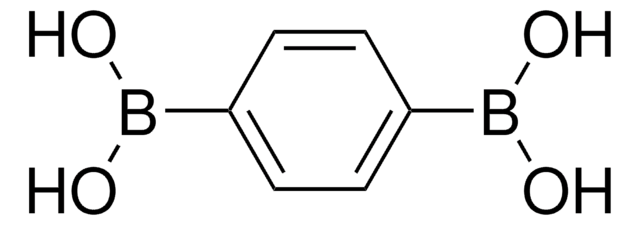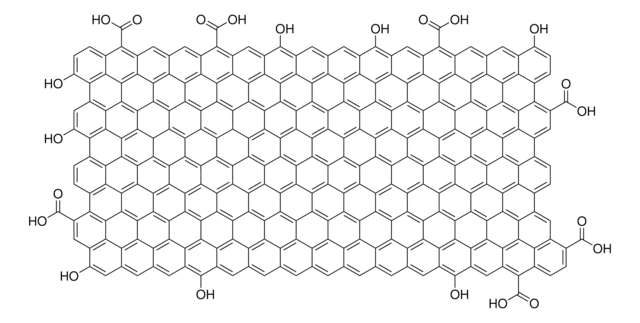900989
1,3,5-Phenyltriboronic acid, tris(pinacol) ester
≥97%
Synonym(s):
1,3,5-Tris(4,4,5,5-tetramethyl-1,3,2-dioxaborolan-2-yl)benzene
About This Item
Recommended Products
Quality Level
Assay
≥97%
form
powder or crystals
mp
286-287 °C
SMILES string
CC1(C)OB(OC1(C)C)C2=CC(B3OC(C)(C)C(C)(C)O3)=CC(B4OC(C)(C)C(C)(C)O4)=C2
InChI
1S/C24H39B3O6/c1-19(2)20(3,4)29-25(28-19)16-13-17(26-30-21(5,6)22(7,8)31-26)15-18(14-16)27-32-23(9,10)24(11,12)33-27/h13-15H,1-12H3
InChI key
VKOLBYNBPONPAE-UHFFFAOYSA-N
Looking for similar products? Visit Product Comparison Guide
Related Categories
Application
Storage Class Code
11 - Combustible Solids
WGK
WGK 3
Flash Point(F)
Not applicable
Flash Point(C)
Not applicable
Certificates of Analysis (COA)
Search for Certificates of Analysis (COA) by entering the products Lot/Batch Number. Lot and Batch Numbers can be found on a product’s label following the words ‘Lot’ or ‘Batch’.
Already Own This Product?
Find documentation for the products that you have recently purchased in the Document Library.
Customers Also Viewed
Our team of scientists has experience in all areas of research including Life Science, Material Science, Chemical Synthesis, Chromatography, Analytical and many others.
Contact Technical Service














